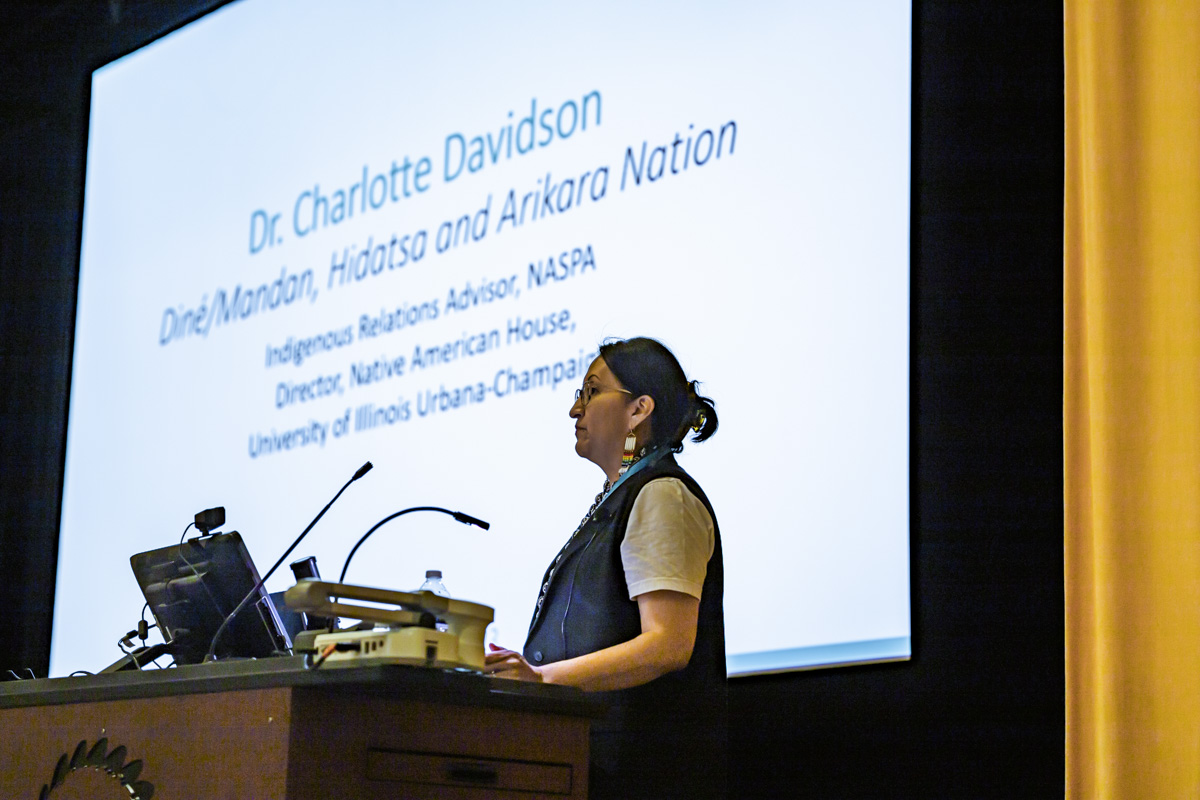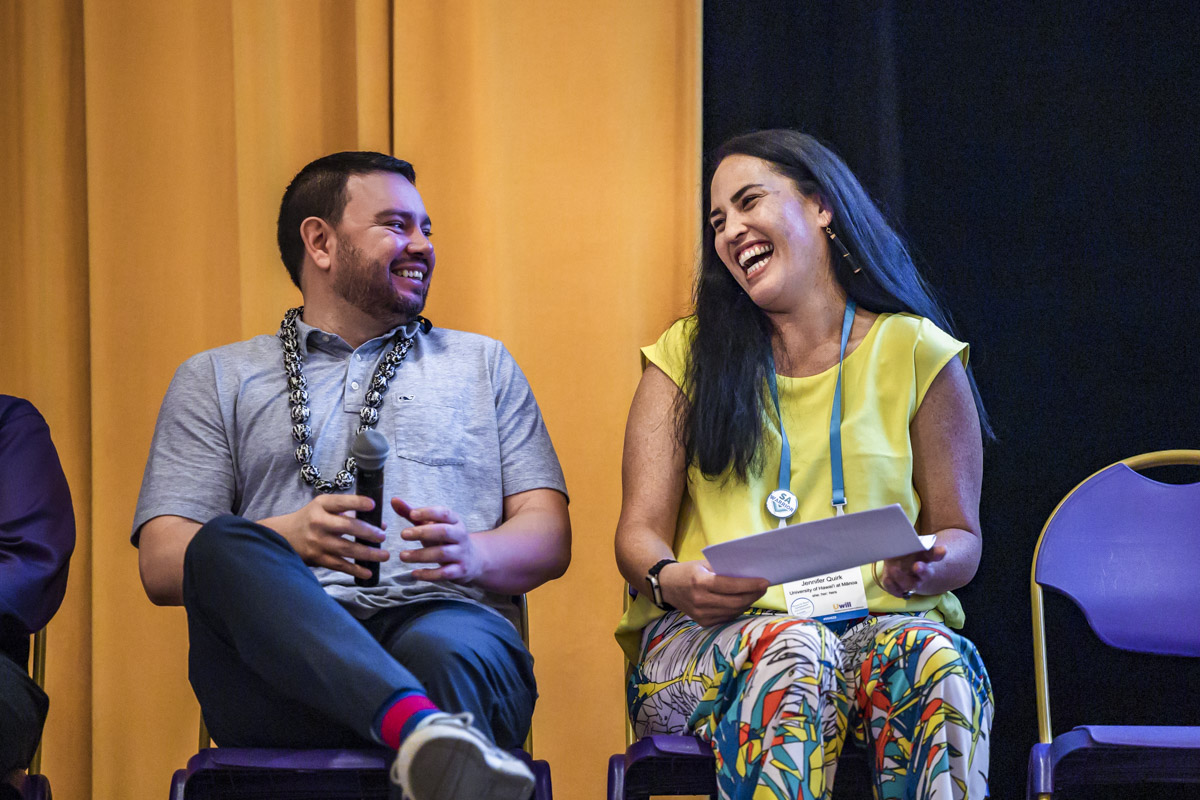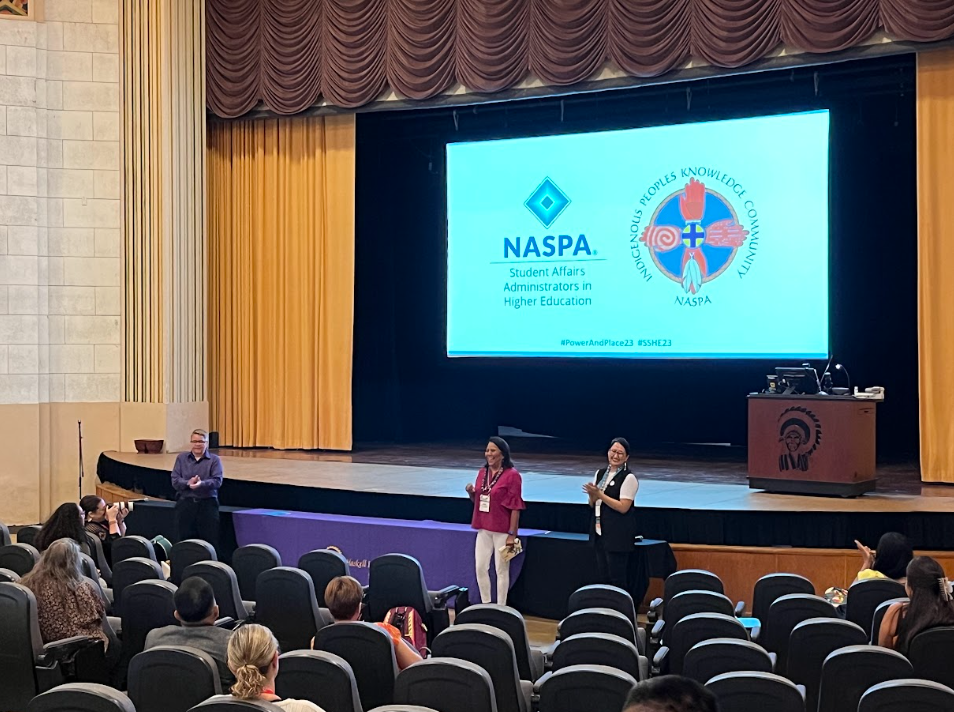NASPA Power and Place Symposium
Division/Group Events Health, Safety, and Well-being Student Success Equity, Inclusion and Social Justice Equity, Inclusion, and Social Justice Division Health, Safety, and Well-being Initiatives Indigenous Peoples
January 15, 2025 Boston, MA
The NASPA Power and Place Symposium advocates for the inclusion of Indigenous worldviews in the work of higher education by questioning, reflecting, and imagining how the concepts in the foundational text Power and Place: Indian Education in America engender conditions for student success and wellness.
The 2025 Power & Place Symposium will be a day-long event held prior to the NASPA Strategies Conferences, in Boston, MA on January 15, 2025.
Registration now open for the 2025 Power and Place Symposium at the 2025 NASPA Strategies Conferences! For questions, please contact Monica Nixon, NASPA Vice President, Justice, Equity, Diversity, and Inclusion.
Presented By
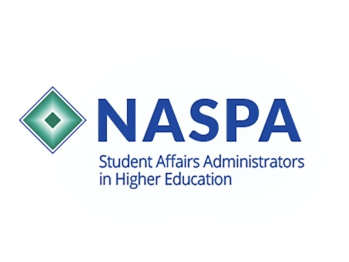
Symposium Goals
A significant Power and Place Symposium goal is to invite, center, and privilege Indigenous perspectives on student success, health, safety, and wellbeing, as well as professional and leadership development experiences in higher education. The Power and Place Symposium is designed for student affairs administrators, higher education scholars, knowledge-keepers, community members, allied educators, and anyone else interested in questioning, reflecting, and imagining how the ideas in the Power and Place text can be applied, as theory, and practice, to transform institutional practices and contexts.
Schedule
NASPA Power and Place Symposium
The NASPA Power and Place Symposium will take place on Wednesday, January 15 from 9:00 a.m. - 5:00 p.m. in the Provincetown Room on the 4th floor of the Marriott Copley Place.
Schedule subject to change.
Schedule
January 15, 2025
9:00 AM - 10:30 AM
Welcome & Opening Keynote - Jordan Clark: Power, Place, and Proximity: Building Support for Native American Students at Harvard
Details
Jordan Clark
Associate Director and Acting Executive Director, Harvard University Native American Program
Tribal Affiliation: Wampanoag Tribe of Aquinnah
10:45 AM - 11:45 AM
Caring without Barriers: Salish Kootenai College's Journey - Brandy Tenas
Brandy Tenas
11:45 AM - 1:00 PM
Lunch on Your Own
1:15 PM - 2:15 PM
Decolonizing Indigenous Invisibility - Dr. Claudia A. Fox Tree
Details
Dr. Claudia A. Fox Tree
Dr. Claudia A. Fox Tree (she/ her/ hers) is a multiracial/ multicultural professional educator and social justice activist who facilitates courses and workshops on diversity, equity, and social justice. She identifies as German and Arawak, and she is a member of the Guainia tribe. Claudia decolonizes equity conversations by highlighting implicit bias and centering Indigenous history, culture, resistance, and contributions. She earned her Ph.D. in Educational Studies from Lesley University and a Master’s Degree in Education from Northeastern University, both on Pawtucket and Massa-adchu-es-et territory.
Through her workshops and keynote addresses, Claudia challenges participants to unlearn colonial narratives and consider Indigenous perspectives on environmental stewardship, systemic racism, and cultural resilience. As an advocate for Indigenous representation, Claudia highlights the importance of recognizing Native peoples in history and as thriving, present-day communities. She works to combat the erasure of Indigenous voices in education, media, and public discourse by emphasizing their continued contributions and lived experiences.
Decolonizing Indigenous Invisibility
Decolonizing is about amplifying Native American voices, integrating essential yet often overlooked knowledge, and reshaping dominant narratives. This presentation includes a hands-on activity to foster connections to the land and its people, highlighting how Indigenous knowledge and achievements have influenced language, history, industrialization, and global cultures.
2:15 PM - 2:30 PM
Community Organization
Native American LifeLines
2:45 PM - 3:45 PM
Reflecting on Tribal Community - University Partnerships with the Institute for New England Native American Studies at UMass Boston - Rachel Winters
Details
This session will provide an overview of local tribal and Native community partnerships through the Institute for New England Native American Studies at UMass Boston. In addition to reflecting on the partnership work with INENAS, participants will be guided through a workshop on the R's of tribal community-university partnerships to apply in their community context.
4:00 PM - 5:00 PM
Symposium Closing - Larry Spotted Crow Mann
Details
Larry Spotted Crow Mann
Award-Winning Author, Playwright, Musician, Cultural Educator, Storyteller
Citizen of the Hassanamisco Nipmuc Tribe of Massachusetts
Larry Spotted Crow Mann is a multi-talented Indigenous artist with a career that spans over three decades. In 2021, Mann was the first recipient of the Indigenous Peoples Award from the NAACP in Massachusetts for his lifetime commitment to social justice and sharing the culture and music of his Tribe.
Educating, sharing and being a voice for social change has been at the heart of his journey. His work and passion have been fueled by many of the painful experiences he has endured growing up as a Native child in an urban environment. Interwoven in his story is how he overcame addiction at the age of 21. Many of his early teachings came from his grandfather, who helped him on the path to healing. Mann’s music, traditional stories and books are always accompanied by important history and the living presence of Indigenous people today.
2025 Symposium Registration
NASPA Power and Place Symposium
The NASPA Power and Place Symposium advocates for the inclusion of Indigenous worldviews in the work of higher education by questioning, reflecting, and imagining how the concepts in the foundational text Power and Place: Indian Education in America engender conditions for student success and wellness.
The Power and Place Symposium is designed for student affairs administrators, higher education scholars, knowledge-keepers, community members, allied educators, and anyone else interested in questioning, reflecting, and imagining how the ideas in the Power and Place text can be applied, as theory, and practice, to transform institutional practices and contexts.
Registration for the Power and Place Symposium can be added to a 2025 NASPA Strategies Conferences registration as a pre-conference session. Or a standalone registration. See instructions below for each option.
Registration information is available by clicking here.
Registering for Power and Place Symposium Only:
- Once you log in to your NASPA Profile click "Register Myself"
- Then in the "I'm Attending As.." page choose "Power & Place Symposium" (see below)
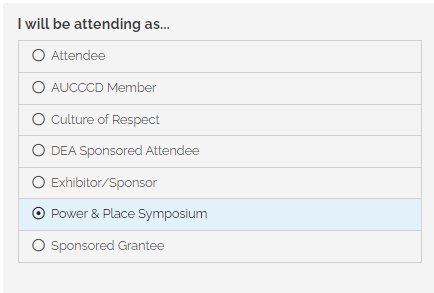
Then select BOTH the Power and Place ONLY Registration Product and the Power and Place Symposium Selection:
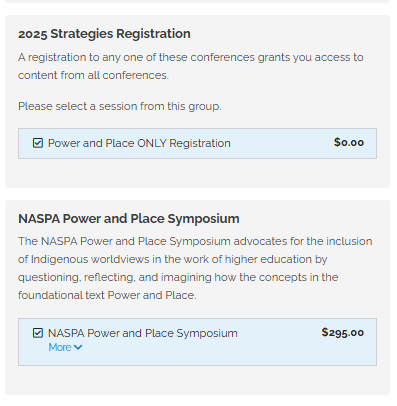
Registering for Power and Place Symposium with 2025 NASPA Strategies Conferences Registration:
- Once you log in to your NASPA Profile click "Register Myself"
- Then in the "I'm Attending As.." page choose "Attendee" (see below)
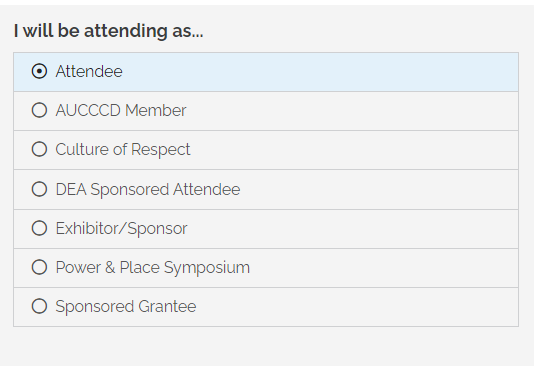
- On the next page choose which conference to attend under then choose the "NASPA Power and Place Symposium" option (see below)
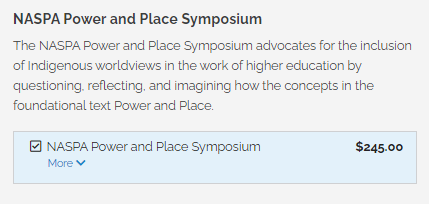
Past Power and Place Symposiums
Images from the 2023 Power and Place Symposium at Haskell Indian Nations University
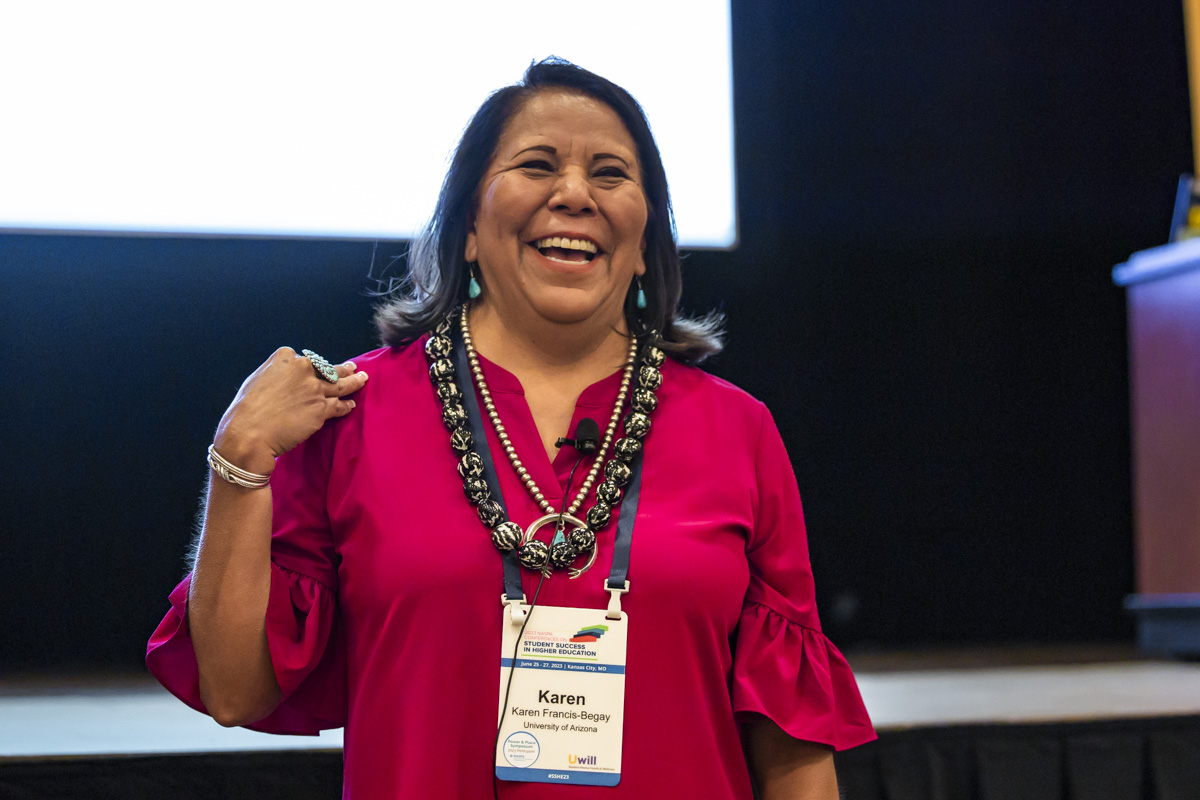 |
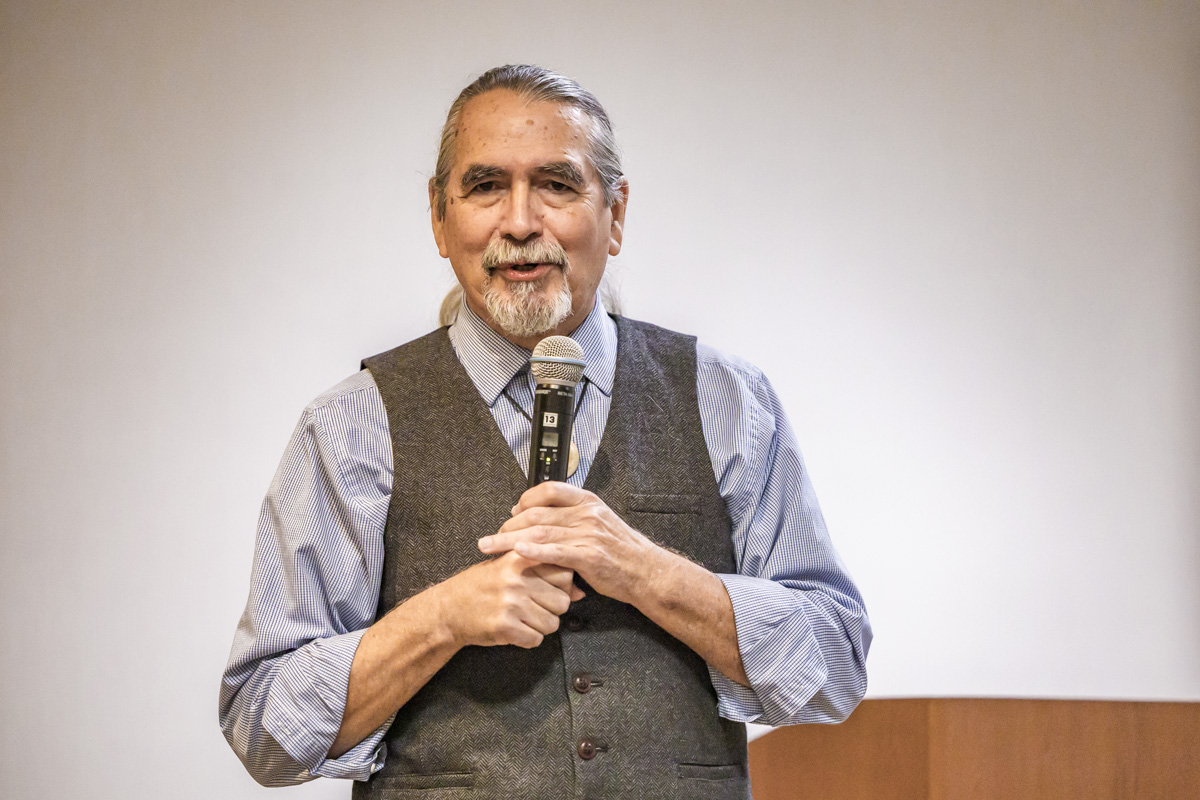 |
|
|
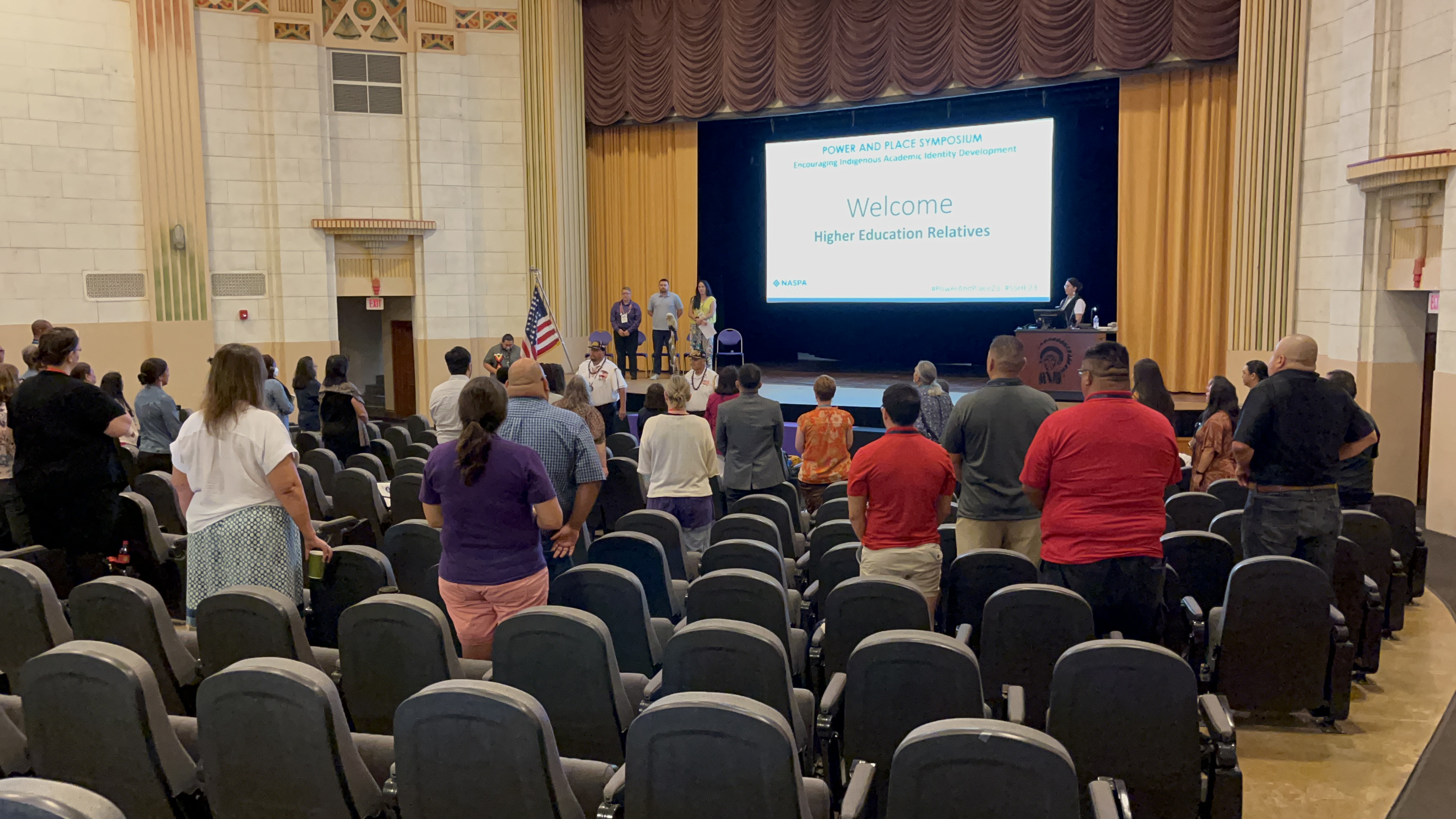 |
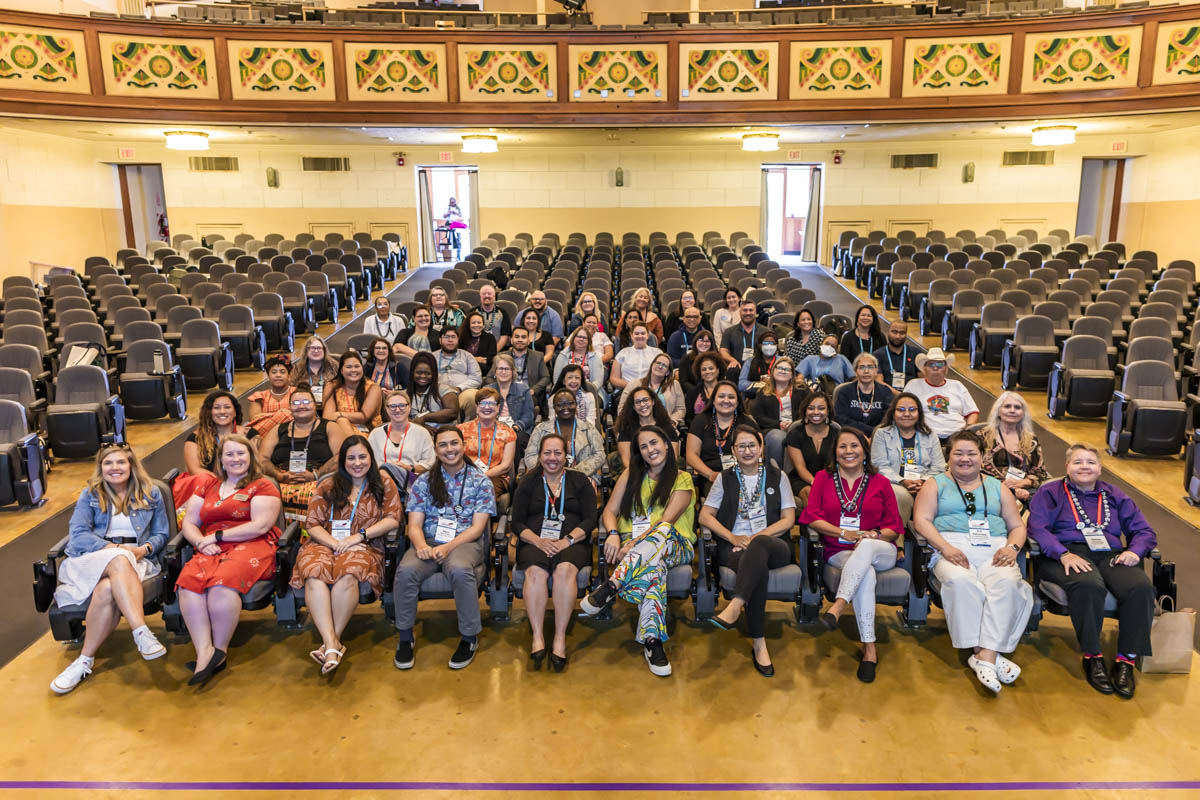 |
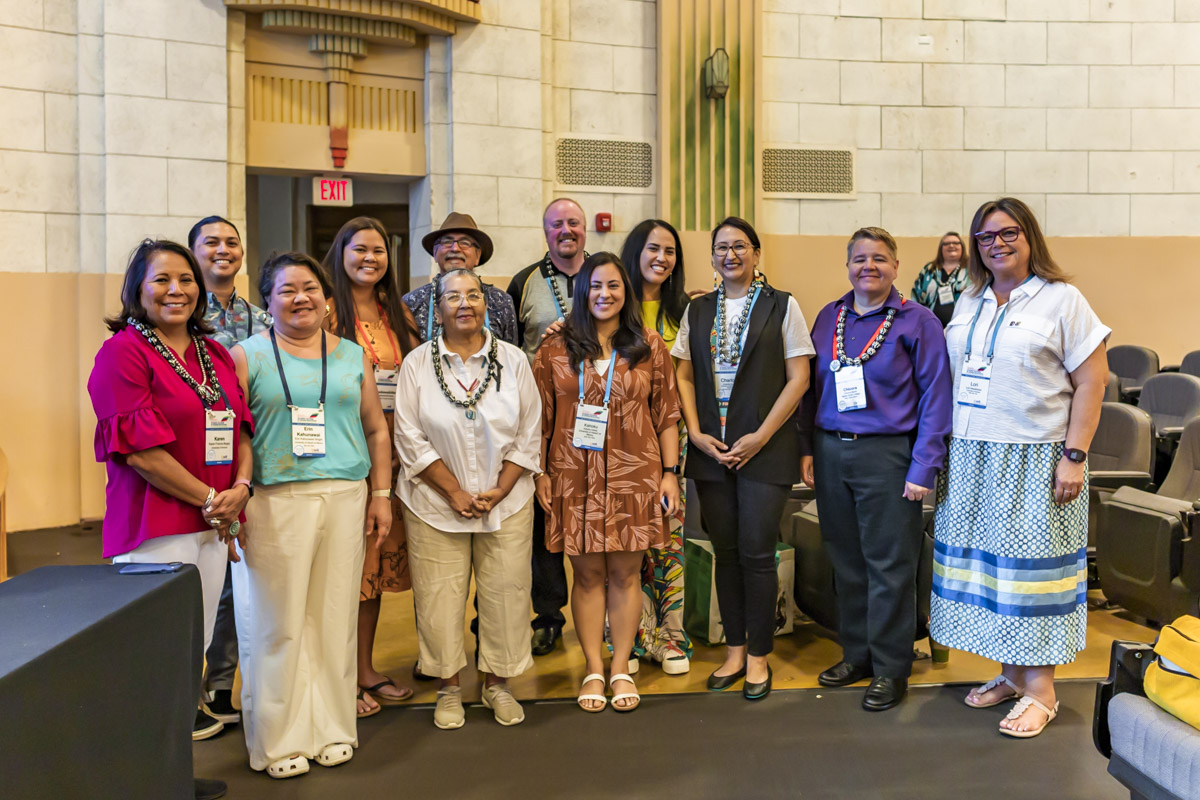 |
|
